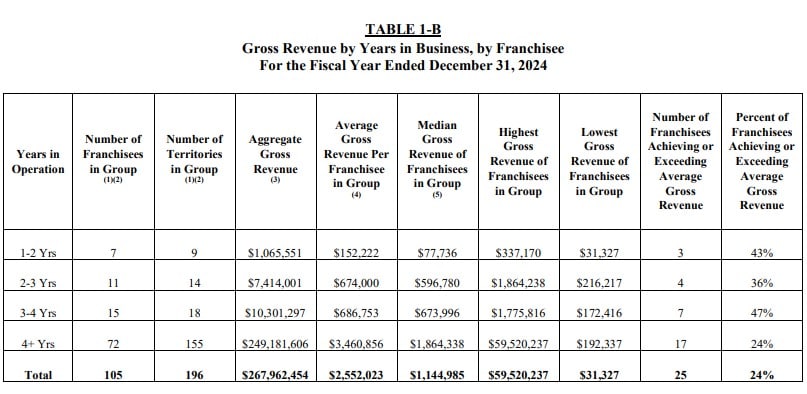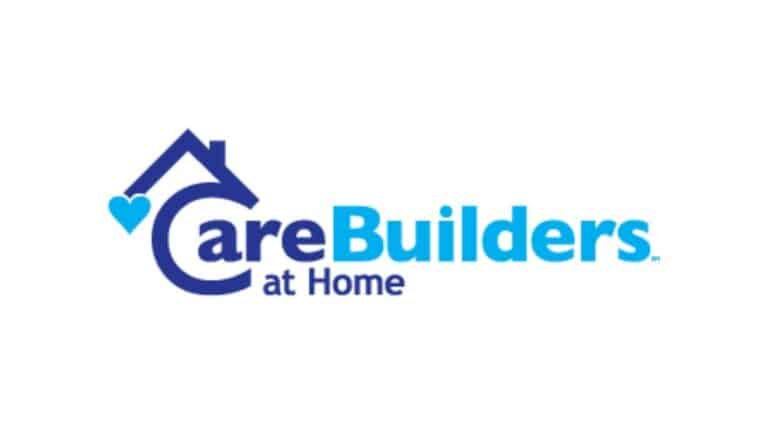Homewatch CareGivers Franchise FDD, Profits & Costs (2025)

Homewatch CareGivers, founded in 1980 by Paul Sauer, is a distinguished provider of home care services with a strong focus on quality and compassion. The company began franchising in 1996 and is headquartered in Columbia, Maryland.
The franchise has expanded significantly both nationally and internationally under the ownership of Authority Brands, LLC, emphasizing its commitment to being a premier provider of home care services.
Homewatch CareGivers differentiates itself in the market by offering a full range of personalized care services that cater to various needs, including senior care, after-hospital and after-surgery care, childcare, and care for those with chronic conditions.
Initial Investment
How much does it cost to start a Homewatch CareGivers franchise? It costs on average between $122,000 – $178,000 to start a Homewatch CareGivers franchised center.
This includes costs for office setup, caregiving equipment, initial marketing, and initial operating expenses. The exact amount depends on factors such as the location, size of the office, and whether the franchisee chooses to lease or purchase the office space.
| Type of Expenditure | Amount |
|---|---|
| Franchise Fee | $50,000 |
| Compliance Toolkit Fees | $2,500 |
| Care+ Initial Software Fees | $1,830 |
| Telephone System | $250 to $500 |
| Travel and Living Expenses While Training | $2,500 to $5,500 |
| Office Equipment and Computer Hardware and Software | $1,060 to $4,500 |
| Lease and Security Deposits | $3,000 to $8,000 |
| Office Furniture | $2,000 to $4,000 |
| Insurance | $8,000 to $18,000 |
| Licenses, Permits, and Professional Fees | $500 to $8,000 |
| Additional Funds – 3 months | $50,000 to $75,000 |
| Total | $121,640 to $177,830 |
Average Revenue (AUV)
How much revenue can you make with a Homewatch CareGivers franchise? A Homewatch CareGivers franchised business makes on average $728,000 in revenue (AUV) per year.
Here is the extract from the Franchise Disclosure Document:

This compares to $754,000 yearly revenue for similar in-home care franchises.
Download the Franchise Disclosure Document
Frequently Asked Questions
How many Homewatch CareGivers locations are there?
As of the latest data, Homewatch CareGivers operates 224 locations across the United States. The company primarily operates through a franchise model, with each location being independently owned and operated.
What is the total investment required to open a Homewatch CareGivers franchise?
The total investment required to open a Homewatch CareGivers franchise ranges from $122,000 to $178,000.
What are the ongoing fees for a Homewatch CareGivers franchise?
A Homewatch CareGivers franchise requires ongoing fees, including a 5% royalty on gross revenue or a minimum monthly amount, which starts at $500 in the initial months and reaches $2,500 by month 61. Franchisees also contribute to a Brand Fund, initially 2% of revenue, which decreases as revenue grows.
Additionally, they must allocate either $24,000 annually or 3% of gross revenue (whichever is higher) for local marketing, plus a minimum of $500 per month for in-person marketing activities. These fees support both brand development and market presence.
What are the financial requirements to become a Homewatch CareGivers franchisee?
To become a Homewatch CareGivers franchisee, you need a minimum net worth of $350,000 and at least $80,000 in liquid capital. These financial requirements ensure you have the necessary resources to establish and operate the franchise effectively.
How much can a Homewatch CareGivers franchise owner expect to earn?
The average gross sales for a Homewatch CareGivers franchise are approximately $0.73 million per location. Assuming a 15% operating profit margin, $0.73 million yearly revenue can result in $110,000 EBITDA annually.
Who owns Homewatch CareGivers?
Homewatch CareGivers is owned by Authority Brands, LLC, a leading provider of in-home services. Authority Brands acquired Homewatch CareGivers in 2017, expanding its portfolio of service-oriented franchises. This acquisition has enabled Homewatch CareGivers to leverage Authority Brands’ extensive resources and expertise, enhancing its growth and service offerings in the home care industry.
Disclaimer
Disclaimer: This content has been made for informational and educational purposes only. We do not make any representation or warranties with respect to the accuracy, applicability, fitness, or completeness of the information presented in the article. You should not construe any such information or other material as legal, tax, investment, financial, or other professional advice. Nothing contained in this article constitutes a solicitation, recommendation, endorsement, advertisement, or offer to buy or sell any franchises, securities, or other financial instruments in this or in any other jurisdiction in which such solicitation or offer would be unlawful under the franchise and/or securities laws of such jurisdiction.
All content in this article is information of a general nature and does not address the detailed circumstances of any particular individual or entity. Nothing in the article constitutes professional and/or financial and/or legal advice, nor does any information in the article constitute a comprehensive or complete statement of the matters discussed or the law relating thereto. You alone assume the sole responsibility of evaluating the merits and risks associated with the use of any information or other content in this article before making any decisions based on such information or other content.




